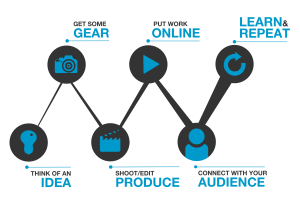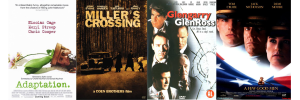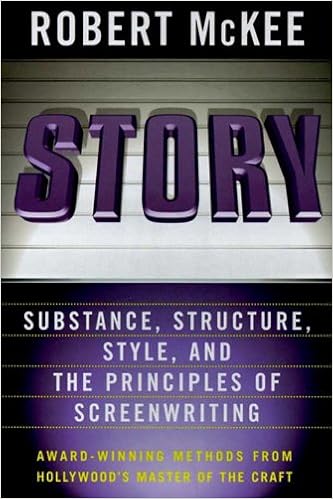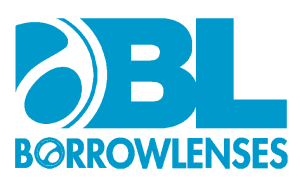Hey there! Michael Hall and Chris Sakr here – we wanted to welcome you to ShoHawk.com! If you’re new and want to know how to start making movies, this is the page for you—it’s where you’ll find the information you need to and get up-to-speed quickly, and begin your filmmaking career!

Our goal is to get you started making movies and defining your career path right now, anywhere in the world. We’ll start with some philosophies to help you make the initial leap into the industry, then dive into a simple formula, tools, and products that we use, daily, to create our own work.
We know they’ll help you too, so let’s get moving: it’s never too soon to begin!
WHAT YOUR HEAD SAYS
The Best Education?
If you’re interested in film production, you’ve considered film school; we both weighed it heavily. But you’ve probably also noticed that many great filmmakers didn’t attend. And you know the internet’s most valuable asset is information. You can find almost any answer you need at any time!
So what’s the best way to learn your craft from scratch? The answer is specific to you, but let’s put things in perspective with insights from a few familiar names:

Film school is expensive, time consuming, and success isn’t guaranteed. So, even if you’re planning on going, why wait to pick up a camera and START?
“I’m not naturally talented,” or “I’m not as good as those around me,” are common hang-ups we all confront. If you give them weight, they’ll stop you before you start. But it’s not talent that counts, early on—the process matters most. Learning and getting comfortable with the process creates talent.

Learning is the key to success. Time behind a camera, working on a set, and building an audience make you a filmmaker. The more you know and the bigger your audience, the more options and opportunities you’ll have. Whether you’re self-educating, or going through the system, focus on what you need to know, not how you learn it.

How Bad Do You Want it?
How many hours have you put in? How many movies have you made—short or feature length? How much time have you spent refining your process?
Natural ability has very little to do with success. Success comes from the hard work you put into learning and executing your craft, and the amount of time and energy you’re willing to invest in your goals.
In his book Outliers: The Story of Success, author and journalist Malcolm Gladwell concluded: “The emerging picture from such studies is that 10,000 hours of practice is required to achieve the level of mastery associated with being a world-class expert—in anything”
The best takeaway from Gladwell’s perspective is that natural ability will only carry you so far. Your work ethic sets you apart; it levels the playing field. Gladwell adds, “Practice isn’t the thing you do once you’re good, it’s the thing you do that makes you good.”
What does this mean for you?
Your career is in your, and only your hands. You need to immerse yourself in the world of making movies: mastering tools and telling stories.
“How do you eat an elephant? One bite at a time.”
Spend every minute of your spare time, every day working toward your goal. Little by little, teach yourself as much as possible. You need to create your own opportunities, with or without a degree on the horizon.
We’re not saying you shouldn’t find teachers and mentors. You definitely should—having someone more experienced show you the ropes speeds the learning process up. Mentors ensure you’ll get the most of out your 10,000 hrs! Which leads us to the ultimate time-efficiency hack we wish we’d had when we first started out:
The 80/20 Principle. Check it out on Wikipedia for a full definition. For a starting filmmaker it translates to: 80% of your results come from 20% of your effort.
If you’re teaching yourself editing, 80% of your usable skills will come from 20% of your attempts. If you’re emailing blogs to spread your film to a wider audience, 80% of your audience will come from 20% of those initial emails.
This doesn’t mean you should do 20% of the necessary work. That would be slacking and you’re trying to break in! What it does mean is, instead of overworking yourself by trying to do everything all at once, you should focus in on the 20% that’s most reasonable and effective RIGHT NOW. To figure out that 20%, you need to analyze the workload in advance, from start to finish.
80/20 analyses take focus. Stand back, look at each available path, and figure out the most logical and immediate steps. The less effort you have to put into little things, the more you can focus on big moves. Even if you’re currently in film school, you must realize you’ll always be learning and growing. Discover efficiency now, and make growth easier, later.
You need to start investing time in yourself and your craft as soon as possible, and do so wisely. The journey is very long, but it can be very rewarding.

On this site, we cover all facets of making movies. Michael covers business and financials, while Christopher talks artistic execution.
YOUR MINDSET + MAKING MOVIES
In today’s economy, every filmmaker needs to understand art and business to succeed. If you really want a filmmaking career, you need to have the mindset of a creative entrepreneur.
“I want to make movies. I’m an artist. I didn’t get into this for business.” That’s how we felt until it dawned on us: why would we want to do anything else but make movies? To have a full time career in any field, you have to make at least some money. To have a sustainable career, you have to grasp some business. Don’t be intimidated; it’s liberating!
Through film history, successful filmmakers have always had an entrepreneurial thought process. Producers and Directors like Georges Méliès in the early 1900’s, Francis Ford Coppola in the 60’s, 70’s, up to today, and modern indie filmmakers like Ava DuVernay or Robert Rodriguiz, have all shared this attitude.
You need to take full ownership of your projects, creatively and financially. It’s never been easier to finance, shoot, and distribute your film, but you need the right skills and tools to succeed.
THE ROADMAP AND VEHICLE
Enough philosophy: let’s talk specifics! If you’re reading this, you love your craft, and have your eye on the future. All you need are some starting points to launch into building those 10,000 hours, and a career.
When we first began, we wasted way too much time on things that didn’t matter. It’s easy to get distracted, so our roadmap is simple. It keeps us focused, and using it will save you from getting overwhelmed or worse: idle.
 These are the pillars of our site and your career. If you understand the 6 major milestones—story, gear, create, release, connect, and learn/repeat—you’re already much further than we were early on.
These are the pillars of our site and your career. If you understand the 6 major milestones—story, gear, create, release, connect, and learn/repeat—you’re already much further than we were early on.
Too simple? Well, there are many hurdles in between to look forward to! Those are the details we cover in blog posts, case studies, and tutorials. You now have the roadmap—we’ll fill in the blanks for you.
Where are you in the journey?
If you aren’t working toward becoming a filmmaker daily, you aren’t making progress.
Be realistic with yourself: look at the roadmap and see exactly where you are. Are you handling gear for the first time? Have you put your work online? Are you growing your audience?
The following sections cover exactly where to start for each pillar.
Think of a Story:
They’re everywhere. Which story do you want to tell? If you’re telling a story in movie-form for the first time, Stillmotion has a fantastic FREE series outlining how to quickly become a solid storyteller. They never mention screenwriting, and instead stick to the basics of great storytelling.
• People / Places / Plot / Purpose (Part 1)
• Core Message – Finding Keywords (Part 2)
• Storyboarding & Shotlist (Part 3)
• Putting It All Together (Part 4)
Once you understand and are practicing the fundamentals, you can next-level your skills by reading actual screenplays. Do this for free by visiting dailyscript.com or imsdb.com (Internet Movie Script Database) and searching for your favorite movies. We also suggest scrolling through the academy award winning screenplays on wikipedia, then finding them on either site.
Why is reading screenplays helpful? The format and structure of screenplays are pretty specific and it helps to see the best examples. There are infinite ways to write a movie script, though, so expose yourself to a variety and find what works best for your style, and for the types of movies you want to make. Some of our personal favorite screenplays and writers are (these scripts contain R-Rated content):

• Adaptation (or anything by Charlie Kaufman)
• Miller’s Crossing (or anything by the Coen Brothers)
• Glengarry Glen Ross (or anything by David Mamet)
• A Few Good Men (or anything by Aaron Sorkin)

If your goal is to master screenwriting, look no further than the legendary “Story Seminar” by Robert McKee. This seminar is really spendy but, if you’re interested in attaining a greater mastery of storytelling through scripts, it might be the right path for you. It’s even referenced heavily in one of the above scripts/films!
If you want to save some cash, the Seminar’s audiobook is available here – it’s definitely worth a listen, even if you’re not planning a focused career in screenwriting. It’s important to understand good screenplay structure so you can select strong projects.
Get Some Gear:
The best gear is always changing. We keep an updated guide HERE to help you decide on the best investments while building your first kit.
The great thing about smart gear investments is once you build an optimal basic kit, you don’t need to keep buying stuff for a while. If you package the perfect kit for yourself, your desires, and your limitations, you’ll have everything you need to start producing.
 If you want to enhance the look of and feel of your movie on a tight budget, we recommend renting from borrowlenses.com. Unfortunately, it’s only a US based service, but some quick Googling can help you find local rental houses near you, anywhere in the world.
If you want to enhance the look of and feel of your movie on a tight budget, we recommend renting from borrowlenses.com. Unfortunately, it’s only a US based service, but some quick Googling can help you find local rental houses near you, anywhere in the world.
Renting can be an extremely affordable way to boost your production quality, especially if you’re simply getting a lens, monitor, or stabilization system. If you got all three for a small DSLR or prosumer camera, you’d probably need to spend around $100 for a 24 hour rental.
Helpful gear rental hint: Most rental houses operate on the principle that a weekend rental costs a single day’s rate. If a particular lens rental is $30 for 24 hours, and you rent it on a Friday afternoon, it’s yours until Monday morning for $30! This is a great hack to get more time for your money.
BONUS: On our last short, we used this trick over Thanksgiving Weekend, so we had our gear from Wednesday afternoon through Monday Morning for the price of a SINGLE DAY! Check your local rental house for deals like this!
Shoot / Edit:
Production takes time and repetition to hone. An important thing to keep in mind is: the more complex the script, the tougher the shoot.
This has consistently been a huge struggle for us. Our ideas for films have always been been big, and the productions have been rough. The less experience you have with production the smaller your shoot should be. Trust us!
When we shot our second feature, we wanted to make a bang. We produced our first in high school, it was very stripped down, and we figured we were ready to graduate.
We had a solid 150 page script with memorable characters, a car chase, cool locations, and an emotional arc. It took us two years to shoot and edit. TWO YEARS! and guess what?
It suuuuucked.
Not because the script, videography, or performances were bad – it was because we didn’t have a grasp on physical production. We bit off way more than we could chew with the scope of the story – multiple locations, lots of actors, casting, styling. It was too much for us to handle.
When you are starting, keep it simple.
Once you can manage a few small productions, slowly move yourself up the ladder. You will have a lot of time in your career to go big, but in the beginning, do as much as you can with as little as possible. If it helps, view this as a challenge—something you need to master before upping your game.
Another essential thing to remember: your production is only as solid as your preparation.
There is a reason films often spend many months in what’s called Pre-Production. Pre-Production is the time to answer as many questions and concerns as possible before ever pointing a camera at anything.
If you have a tight group working the project with you, you can use this time to schedule, rehearse scenes, figure out what you’ll need for each day, etc.
We recommend you, the filmmaker, use this time to answer questions from your collaborators. Sure, more will arise later, but advance answers helps reduce overload on shoot days, and keep the filming focused. The more prepared people are, the more productive they can be.
Think of Pre-Production as the 20% to your filmmaking, with the remaining 80% being shooting as and editing. Though the 80% may take longer and the 20% feels a lot more tedious, we assure you you’ll be thankful you you fought through the monotony and made the best of that preparation.
We hated it at first because it felt about as far from making movies as possible. But over time we came to love it, and realized that many creative decisions could be made in this period too! Any rough, overlong, or tedious shoot either of us have ever been on was the result of too little preparation
Simplicity and preparation are not only lessons we learned by making films, but through Dov Simens’ 2 Day Film School. We wished we’d attended this seminar before making our first two features.
Once you’ve been messing around with a camera and storytelling, we recommend checking out the 2 Day Film School. If you were to take any course on making movies, this is the one. His alumni speak for themselves. While we went to the live seminar so we could ask questions, the DVDs and Streaming Film School really pack a punch too.
The site and presentation are a bit cheesy, but he really offers unparalleled advice about physical production, and planning. We would’ve truly been saved quite a bit of heartache and time if we’d taken this course earlier on in our careers.

While it’s extremely valuable to have someone else edit your work—yet another lesson we learned the hard way—we do recommend you learn the basics of editing. It’s important to have a working understanding of how shots sequence together to create emotion and push a story forward, just like knowing screenwriting, even if you’re not aspiring to write for a living.
Probably the greatest education on the true power of great editing is In the Blink of an Eye. In this phenomenal book, written by one of cinema’s greatest editors, Walter Murch breaks down his theories and practices in great detail. Even if you’ve been editing films for a while, this book is essential reading and will teach you as much as any in-depth editing class, straight from the man who helmed cutting The Godfather, Apocalypse Now, and Cold Mountain!
If you are looking to learn how to edit well for the first time, both Lynda.com and Skillshare.com host fantastic, up-to-date tutorials on most major editing programs, from Final Cut to Adobe, to Avid.
If you’re not interested in editing yourself, you can find great freelancers on Elance.com and Upwork.com. Craigslist is also an excellent resource! We’ve found many freelance jobs, and hired a few freelancers here. Just visit your city’s Cragislist page, go to the “Gigs” box, and click either “Creative” or “Crew” to search existing jobs. Click “Post” in the top right-hand corner to create a job and collect local applications.
Ultimately, here’s the bottom line when producing your project: work with what you can. If you don’t have the money to buy a high-end camera, or invest in a post-production suite, don’t let that stop you from completing work and getting it out there! Do you have a smartphone camera? That’s all you need, and most smartphones even have downloadable editing apps!
Do you already own a laptop or desktop? Most computers come stock with a consumer-grade video editing program. Don’t let your desire for “the best” stop you from building experience when you’re short on some cash. If you can’t afford professional gear, start with what you have, and upgrade as your skills enhance. Great storytelling always speaks louder than expensive tools! If you wan to learn quickly about great storytelling, we highly recommend checking out our article on mise en scene.
Below are devices and programs, already in your pocket or on your desk, that you can use to start building your filmography today. We use Apple devices, so that’s what we’ll show you here. However, there are many equivalents on PCs and other smartphones that will also get the job done.
Apple Camera: The iPhone, iPad, and iPod camera is ever-improving. You can shoot high-resolution video, and now slow motion. Who knows what they’ll roll out with next? More and more films are being produced and shared on iPhones, daily.
iMovie: a great consumer level editing program. It’s what we started with, before going pro. Available for FREE on iPhone and your Mac computer, it is a great App to learn editing fundamentals on, and is always increasing its flexibility!
Videoshop: This is an incredible iPhone/iPad app—especially for $1.99. We use it regularly for Instagram and Facebook content. It allows you to edit your phone’s videos in a simple environment, straight from your iPhone! From color, to sound, it’s seriously, fantastic!
Put Your Stuff Online:
 Putting your work on YouTube and Vimeo is great, but you also need to make sure you have a website to serve as a central hub. If you don’t, you can lose audience members from project-to-project. This is a mistake we’ve made in the past, and want to help you avoid from the get-go. We get into why websites are important here.
Putting your work on YouTube and Vimeo is great, but you also need to make sure you have a website to serve as a central hub. If you don’t, you can lose audience members from project-to-project. This is a mistake we’ve made in the past, and want to help you avoid from the get-go. We get into why websites are important here.
When it comes to creating a site, there are lots free options– Blogger, Wix, or Tumblr — but we suggest hosting yourself. This essentially means you control all aspects do your site, from how it looks, to where it lives and what it’s named. Don’t let this intimidate you—it’s surprisingly simple!
The reasons self-hosting is superior are, it’s generally more cost-efficient, you have more design options, flexibility, and it’s something you can really call your own. Plus, if you go with a free option, you’ll be forced to have an extra extension. For instance, instead of http://ShoHawk.com, you’d be assigned something like http://ShoHawk.tumblr.com. The extension looks a little less professional.
BlueHost is the hosting service we know and trust. It’s super easy to set up, they have great customer servicer, and it’s cheaper in the long run than using a service like Squarespace. The video below takes you through the process of getting your website up and running IN LESS THAN TEN MINUTES!
Connect With Your Audience:
Putting work out into the world is essential, but what good is it if all it does is sits on the internet, waiting to be found? It took us a long time to understand how finding an audience works, but the key lesson here is this: online video is exploding in popularity. Check out these YouTube Statistics and see that it’s almost impossible to simply be “discovered” anymore! You have to find your audience.
Is this a little nerve wracking? Sure! Your hard work may remain undiscovered or be criticized by those who see it. But we grow as artists by listening to what others have to say is and isn’t working about our films.
On the flip side, you can’t listen to every little critique and think it’s correct. You need to create a mental filter and take the good with the bad. That’s the creative life. You need to identify your own standards and measure what others say against them.
When looking to discover and connect with an audience, it breaks down like this:
1. Define your ideal audience
2. Understand your audience
3. Find where they hang out online
4. Start engaging them
The best news is, finding and engaging an audience is easier than it’s ever been online. We now have tools like BuzzSumo to easily and efficiently seek out relevant communities and audiences. Imagine trying to find an audience pre-internet; it would have taken 100 times as much effort, and/or guessing.
Learn + Repeat:
It’s all a journey. It’s going to take time for you to reach your goals, but it’s about the process of going out and working toward them everyday, with dedication. That process turns you from aspiring amateur in to disciplined creative professional.

Does this all sound tedious and time consuming? It absolutely can be. But it’s a part of growth. For the past 100-plus years of movie making, we’ve been shown stars and overnight successes. Now, in the online marketplace, everything is democratized and making movies is like any other enterprise: it takes time and experience to grow.
When you find yourself frustrated or waiting to be discovered and angry that you haven’t been, here’s a wonderful reminder to think of:
No average person gets a business degree and immediately becomes the CEO of a Fortune 500 company! They have to work their way through the ranks, from the mail room or wherever, building experience, expertise, and trust as they go. Your filmmaking career is NO DIFFERENT. Being realistic about your path will help you keep moving forward in an industry and artform that’s still a little set in its old ways, but also still young. It’s just finding itself, and it’s your job to help build a better future!
Get ahead of the curve and start taking ownership!
You have an incredible abundance of opportunities today. Never has there been so much information, technology, and gear accessible to the masses as there is right now.
WE CARE!
We’re not perfect. We’re a couple guys who work hard to make movies.
We make mistakes and we want you to learn from them. We’re not too shy to talk about what has and hasn’t worked—we’re as open as possible about our process. That’s why we founded this site; this arm of ShoHawk.
This is the site we wished we’d had when we first tried to figure filmmaking out. If that sounds helpful for you, tune in to our regular content and sign up for our email newsletter, where we’ll give you awesome additional insider info on making movies, making a living in the film industry, and growing your career and craft. We REFUSE to spam you. Everything covered on this page is the crux of what defines ShoHawk.
As a thank you for signing up, we’ll send you our tested guide: Top 4 Ways Filmmakers Can Make Money Online. If you have any questions, feel free to hit us up! We’ll get back to you as soon as possible.
Good luck, work hard, and we’re always here to help! Let’s build careers and a future for filmmaking, one movie at a time.
Talk soon,
Michael + Chris 🙂
can barely read any of those quotes on my phone
Thanks for the heads up, Alex!
Great article!
We recently published two articles that also may help people who are looking to get started in video production.
“Getting Started in the Film and Video Production Industry” is for those looking to get jobs on productions.
https://medium.com/helioscene-blog/getting-started-in-the-film-and-video-production-industry-7471584e31ea
“How to Create Your First YouTube Video” is for those looking to learn to shoot their first video, when they don’t have any filmmaking experience.
https://medium.com/helioscene-blog/how-to-create-your-first-youtube-video-f7ed4a413b0c
Thanks David! Great stuff!
You guys are so lucky you started young. I think I was born in the wrong time zone as I’m a retired person now and just starting on the biz of film making. I spent 25 years writing stage plays and screenplays and then a TV series, two years on a professional acting course (at age 30) ran a theatre restaurant for 12 months (loved it) sang in Sydney clubs in my forties and I’d better live to be a healthy 100 year old as now I’m shooting and editing films as well as running a little networking for people involved in the film and TV industry, and crewing on people’s short films and playing an extra as well. Phew! I really get what you say about it being a business, and if I had the money I’d be employing an Accountant and a Lawyer, but Screen Australia and the Media Entertainment arts alliance are helping with this in Australia and the SA film Corp and the Media Resource Centre in Adelaide South Australia have also been a great help. Love ShoHawk as your advice is top notch. I’m thinking about getting some actors I know of to help me make a little short film in 2016 whilst the Producer I found to help me with my TV series is going to make her horror film. I hate that genre but it’s popular at present, and my TV series is a dramedy (Not supposed to say that, but it is!), but then once upon a time who thought of such a thing as “black comedy”? Sorry this is more of a blog than a comment.
Question. I recently completed a screenplay. I am looking to get a meeting with a big 6 agent to discuss my work and see if he or she would be willing to represent me moving forward. I got an email response back from a gatekeeper at one of the agencies stating that my unsolicited work will not be reviewed by anyone there unless it is presented by an “established entertainment representative.” What does “established entertainment representative” mean? Isn’t that an agent? Seems like a “catch 22”. Can’t get an agent to meet with me unless my work is presented by an “established entertainment representative”. How can I get my work seen unless by an “established entertainment representative if one is unwilling or unable to even meet with me due to company policy. Advice. Thanks. NEVER BE SATISFIED!